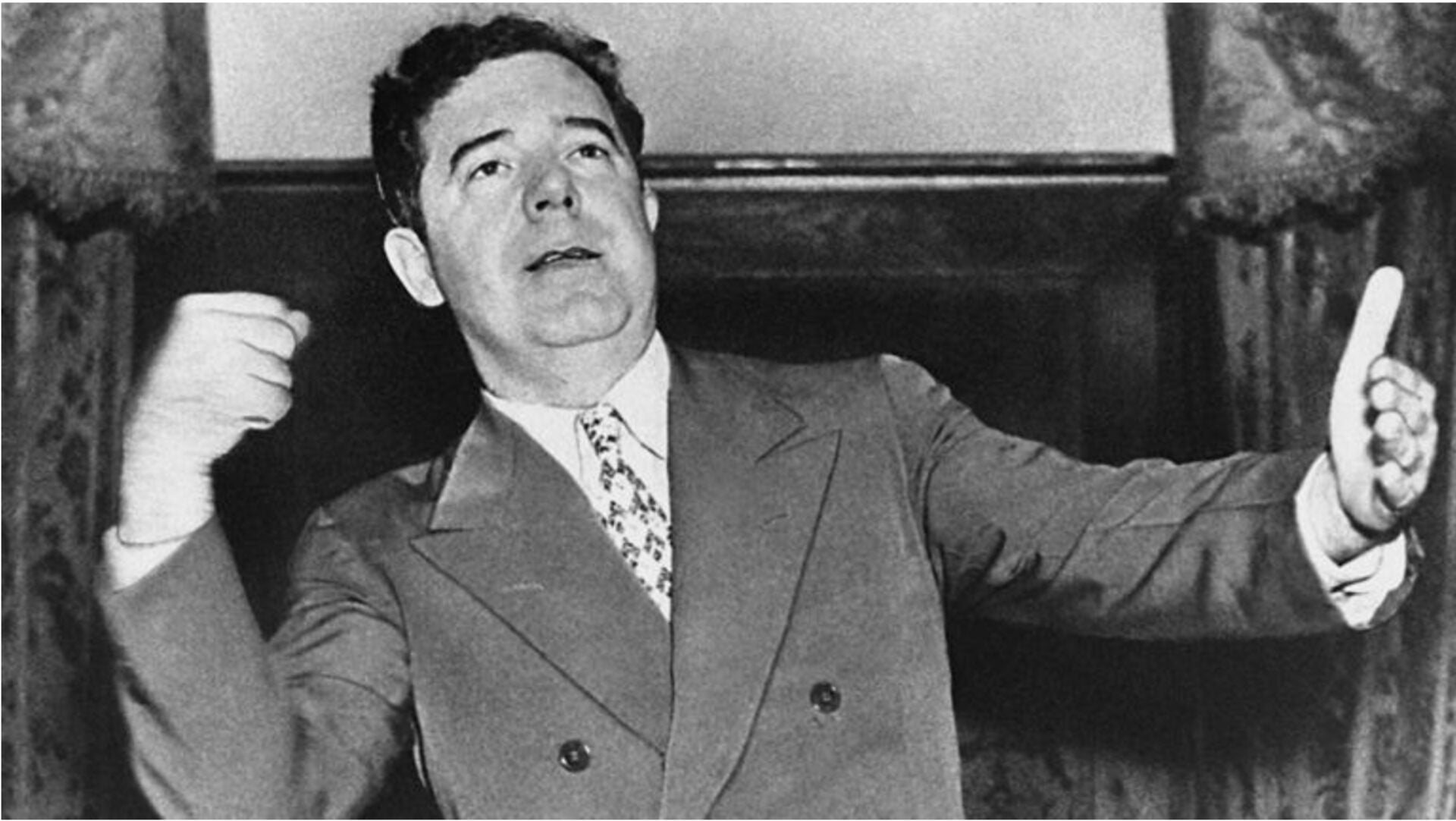
Beating the Authoritarian Playbook on Climate Change
What if President Trump embraced the climate crisis as a way to assert an authoritarian regime? Mark Alan Hughes envisions a scenario where energy independence and anti-immigration policies are pursued in the name of climate protection.
A sobering theme now defines the discussion of climate change. Scientists and analysts are more openly debating whether it is too late to meet the goals of the historic Paris Agreement. These debates typically end with disagreement over whether experts think it will be hard or really, really hard to meet the Paris goals. Thoughtful journalists—who often are the best readers of physical and social science and the best translators of it for decision makers and their constituents—reluctantly concede that near-miracles are necessary to avoid the worst impacts of climate change.
This theme is often expressed by a phrase like, “climate change requires a mobilization like the U.S. in World War II.” That simile is used to convey the need for things like command-and-control over production and consumption, limits on individual and community choices, and an enforced consensus on sacrifice and commitment to the cause.
Five or twenty years ago, climate change could be framed as an avoidable or manageable phenomenon that potentially created economic advantages for nations and communities that acted early. But today, the carbon budget has dwindled and early climate impacts are already happening. Competing over prosperity may soon pivot toward competing over survival.
All this raises a haunting scenario: What if President Trump were to embrace the crisis of climate change, realizing that it provided him a near-perfect agenda for his authoritarian regime? In wildly Orwellian fashion, that agenda would co-opt a leading progressive policy issue into the service of apocalyptic nativism.
Consider the mesmerizing potential of just three parts of such an agenda.
America First. The game-changing and last-best-chance Paris Agreement is based on differentiated national commitments to reduce carbon emissions to a safer level. Those commitments in turn are based on a global budget of remaining emissions that would maintain that safer level. An “America First” agenda would reject all arguments for sharing this budget globally and instead seize as much of the remaining carbon budget as possible.
America Great. The U.S. has large hydrocarbon reserves, especially in the form of natural gas, made available through fracking technology. Once the global carbon budget is claimed for the U.S., an “America Great” agenda would pursue energy dominance by exporting natural gas in the form of LNG. In turn, an America Great agenda would invest its seizure of the global carbon budget in protecting U.S. infrastructure from climate change impacts such as sea-level rise, warmer and wetter weather, and habitat destruction—all of which can be used to generate demand for carbon-intensive concrete and steel infrastructure.
America for Americans. Climate change is already linked to conflict and migrations within and among nations and continents. Once the global carbon budget is seized and devoted to protecting the U.S., an “America for Americans” agenda would protect these benefits by severely limiting the entry of population into the U.S. At this point, it is probably not beyond the pale to suggest that an Anschluss of Canada (since they insist on calling themselves Americans, too) would become increasingly likely.
An authoritarian regime of America First, Great, and for Americans speaks powerfully to one side of our polarized country. As Jon Meacham notes, “Our history and our politics even now are unintelligible without first appreciating the roots of white Southern discontent about the verdict of the Civil War.”
And for white supremacists who treasure the Lost Cause and dream of being “left alone” with their privileges, seizing the global carbon budget to build a survivable homeland for survivalists has an immoral logic.
And that’s precisely why the only winnable reply to a Trumpian climate policy is a moral one. We need leaders who fight against climate change on behalf of the planet not just America. All the great mobilizations of U.S. power have had this moral and global dimension. Lincoln called us to save “the last best hope of earth.” Wilson called us to make the world “safe for democracy.” And FDR called us to secure the Four Freedoms, following each with the phrase “everywhere in the world.”
Surviving climate change is the great challenge of this century. It is a uniquely American burden at this moment to ensure the challenge is a global not tribal one.
Mark Alan Hughes
Director EmeritusMark Alan Hughes is director emeritus of the Kleinman Center. During his time as faculty director, he led the Center and wrote on topics ranging from deep decarbonization to the future of Philadelphia’s energy landscape.

